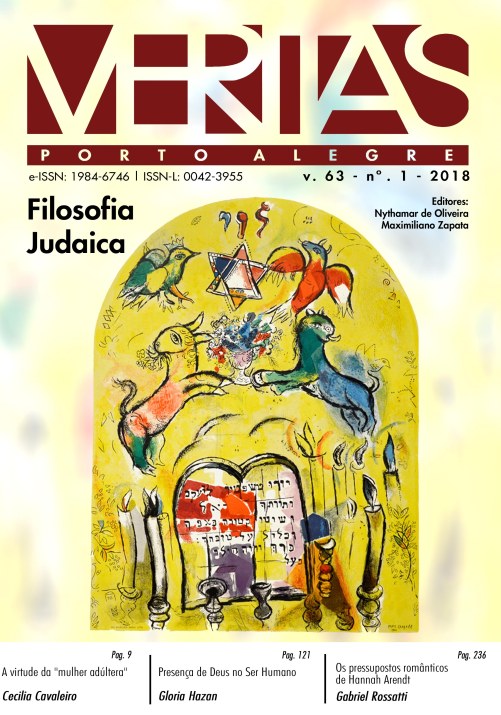Shame, de-subjectivation and passivity – on the metaphysics of the Self in Levinas and Agamben
DOI:
https://doi.org/10.15448/1984-6746.2018.1.30069Palabras clave:
Shame, Desire, Ethics, Affective TonalitiesResumen
This article provides a relation between the problem of shame in both Levinas and Agamben, focusing, for the most part, in the development of Levinas' metaphysics and its relation to the emotional tonality of shame in three works: "On Escape", "Time and the Other" and "Otherwise than Being". In stressing the unique take that Levinas has on metaphysics, I try to point at the tension between Jewish and Greek thought in Levinas, and his option for a radical notion of a situated understanding of the "ethical". Hence my interest in contrasting Levinas and Agamben, as Agamben's appropriation of Levinas' lexicon in his "Remnants of Aushwitz" places the subject in a political, and material, position which is ultimately uncompatible with Levinas' situational and metaphysical take on the self.Descargas
Citas
AGAMBEN, Giorgio. Remnants of Auschwitz: The witness and the archive. New York: Zone Books, 2002.
____. Means without end : Notes on Politics. Minneapolis: University of Minnesota Press. 2000
LEVINAS, Emmanuel. Totality and Infinity. Pittsburgh: Duquesne University Press, 2007
____. On escape. Stanford: Stanford University press, 2003
____.Otherwise than being. Pittsburgh: Duquesne University Press, 1998
STEINBOCK, Anthony. “Generativity and the scope of generative phenomenology” in WELTON, Donn. (Org) The New Husserl: A critical reader. Bloomington: Indiana University Press, 2003
Descargas
Publicado
Cómo citar
Número
Sección
Licencia
Derechos de Autor
La sumisión de originales para la Revista Veritas implica la transferencia, por los autores, de los derechos de publicación. El copyright de los artículos de esta revista es el autor, junto con los derechos de la revista a la primera publicación. Los autores sólo podrán utilizar los mismos resultados en otras publicaciones indicando claramente a Revista Veritas como el medio de la publicación original.
Creative Commons License
Excepto donde especificado de modo diferente, se aplican a la materia publicada en este periódico los términos de una licencia Creative Commons Atribución 4.0 Internacional, que permite el uso irrestricto, la distribución y la reproducción en cualquier medio siempre y cuando la publicación original sea correctamente citada. Copyright: © 2006-2020 EDIPUCRS






